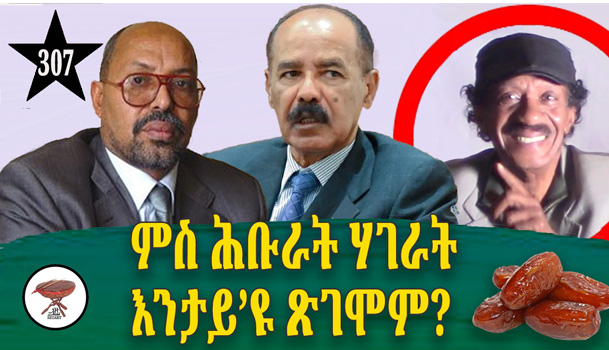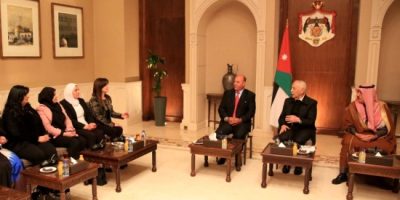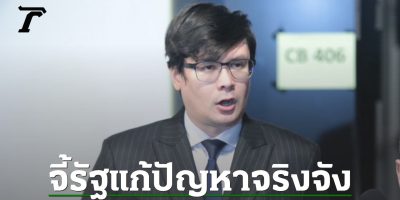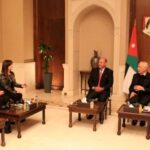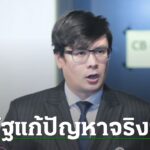If you are oblivious to how things work, you risk feeding on every propaganda or rumor and endlessly blaming everyone but yourself. The above is a true story; there is a danger of forgetting the root cause, thus point your fingers in the wrong direction.
For instance, if you misplace any of your clothes, you would make sure to check the cloth hanger before searching other places. Likewise, many propaganda-fed Eritreans have a political coat hanger where they think they would find answers to their grievance, even without proper reference; they find a readily available quote that many repeat with so much confidence is the seven-decades-old quote attributed to the then US foreign Secretary, John Foster Dulles.
In the minds of the Eritrean ruling party, the UN (among many others) is probably the most hated institution—blame it on John Foster Dulles! For too long it has been repeated ad infinitum.
Undeniably, the UN is heavily influenced by members who are the funders and veto power holders; many Eritreans ignore the context of powerplay and the bipolar world and act as if they are the only victims of that era. However, even the real and perceived accusations against the West and the UN are excuses and overly exaggerated. That helped develop the ruling party’s unengaging tactics and confrontational foreign policy, something the opposition blames them for.
It is difficult to argue for a fair assessment of Eritrea’s positions against the big powers, particularly Britain and the USA, which are considered the twin fathers of the UN. However, no objective person would conclude that all the evils that befall Eritrea are of their making, even if executed by countries and leaders perceived as their “lackeys” by the Eritrean ruling party. And many cannot break free of the massive brainwashing they went through—they cannot see things rationally.
Eritreans who grew up in the 1960s benefited from aid provided by the West, and the PFDJ avoids making distinctions between the countries that provided the aid and the UN.
School children benefitted from the soluble ink tablets that were used in fountain pens for writing. There were soap rations, powdered milk, vitamin tablets, inoculations, and vaccinations. Of course, most of the accolades went to John F. Kennedy, thanks to the American marketing genius.
In later years, the UN helped tens of thousands of Eritrean refugees by erecting camps and providing medical services and schools. Beginning in the early 1970s, the UN provided lasses passe (passports) for them to travel and settle in many countries where they acquired education, established families, and got job opportunities. Still, the UN runs many developmental projects all over the world, including in Eritrea. Even during the struggle years, some of the aid that was provided by the UN and other charitable donors found its way to the liberation struggle combatants.
After the independence of Eritrea, the grudge against the UN and the West didn’t change much, but its contributions were downplayed. Yet, the UN provided funds and personnel to carry out the referendum and confirmed Eritrea’s de facto independence, a valuable legal cover. But the PFDJ stayed stuck on old history, only focusing on the negative political side, on relations that were interest-based, lobby-based, and generally a result of geopolitical rivalry. It expected all the 200 or so UN member states to side with it on all matters. It considered itself a special child deserving extra care. Its narration was based on that and made a big chunk of Eritreans forget that their country is just one member and doesn’t have a privileged membership. Every member state has its own concern, and winning votes or favors requires wise and effective diplomacy. For instance, if a state files 100 complaints or requests, it shouldn’t expect to get favorable actions on all of them.
The following is the coat hanger quote by John Foster Dulles:
“From the point of view of justice, the opinion of the Eritrean people must receive consideration. Nevertheless, the strategic interests of the United States in the Red Sea Basin and world peace make it necessary that the country be linked with our ally Ethiopia.” (1950 or 1952, depending on different papers).
True, the major powers were required to help resolve the Eritrean case; the main proposal was to divide Eritrea between Sudan and Ethiopia, a view most probably shared by John Foster Dulles in 1948 (ref: UN bulletin). Also, that is an attribution without a clear reference—possibly paraphrased.
But Dulles has said, “If the Assembly did not reach a satisfactory solution, international problems would be more and more subjected to the relations between opposing national forces. As the territories in question were non-self-governing, the two basic principles of Chapter XI of the Charter must be applied: that the interests of the inhabitants of those territories were paramount and that international peace and security must be furthered.”
Their rationale was that Eritrea is not ready for independence; the possibility of the territory being used as a base against Ethiopia; and to provide Ethiopia access to the sea, the eastern part of Eritrea, including Massawa and Asmara, to be incorporated with Ethiopia; and a separate solution to be sought for western Eritrea.
Based on what Eritreans experienced in the last seven decades, the UN and the West have been part of the disaster. Criticizing them is warranted; they have been allies of those who caused the long-suffering Eritrea. But that old grievance is overtaken by history and should not be kept alive.
What’s Eritrea’s Problem with the UN?
The support of UNICEF, FAO, WHO, and other UN agencies to Eritrea should be recognized; ungratefulness should not be justified.
Lately I have been doing some research on the topic and watching videos about the agricultural projects that the UN and other funders are developing, for instance, date palm tree agriculture in parts of Eritrea. However, they are hardly mentioned, let alone thanked. As usual, the PFDJ presents the projects as if it’s an achievement it executed alone. A video entitled “Transforming Lives and Building Climate Resilience stands out.”
The citizens are so much influenced by the PFDJ narration and propaganda that they heap praises on the PFDJ regime alone: “We thank our government; they built this dam. We thank our government; they are doing great.” The praise continues: “Our government gave us cows and goats, [and some of us] received money; it has been generous on everything; it supports us enough.” I wish they mentioned the UN and acknowledged its support; unfortunately, that wouldn’t be the customary PFDJ script; they don’t acknowledge anyone. On the contrary, one UN official has recognized the government and the people: “UNDP has used local know-how strategy; it’s not a stand-alone project.”
Date palm cultivation in the Sahel, Anseba, and Semhar regions, close to the Red Sea, is an uplifting development. There are “substantial efforts to establish date plantations, introduce new varieties, and develop sustainable date production.”
The Eritrean veterinarians, agricultural experts, and engineers are doing a great job, but alas, the PFDJ culture doesn’t allow for proper appraisal and assessment of its activities by the public—everything is contaminated by propaganda and partisan politics.
The UN in Eritrea
Eritrea has a resident United Nations Country Team (UNCT) that administers the many UN agencies, funds, and programs active in the country—10 resident and 10 non-resident entities. They are working on strategic priorities laid out in UNSDCF 2022-2026. Its goal is to achieve the 2030 Agenda on Sustainable Development, in line with the national priorities of the Government of the State of Eritrea and by partnering with it.
Of course, the agencies never downplay the role of the government or the people of Eritrea. They don’t claim credit for themselves alone. The partners are “the government of the state of Eritrea, international financial institutions (IFIs), donor governments, development agencies, and the people of Eritrea.” Check link for funders/partners and UN agencies operating in Eritrea
Conclusion:
I am convinced that the embarrassing economic situation in Eritrea would be ameliorated if the hurdles that are hindering Eritrean professionals, businesspeople, and investors from unleashing their resourcefulness, skill, and financial capital in developing their country. That is why Eritreans must focus on justice, the rule of law, and full participation of citizens in running their country. Once that is possible, I believe in a decade, Eritreans can achieve what was not achieved in the last half a century.

